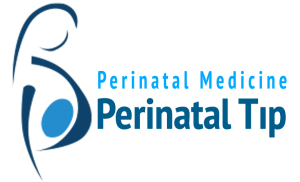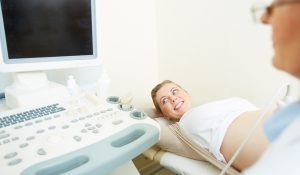
High-Risk Pregnancy
Doctor Follow-up in High-Risk Pregnancy
 Pregnancy is a normal and natural process. In some cases, diseases in the body of the expectant mother before conception (existing diseases of the mother) or problems that occur during the pregnancy period after pregnancy lead to the emergence of various risks.
Pregnancy is a normal and natural process. In some cases, diseases in the body of the expectant mother before conception (existing diseases of the mother) or problems that occur during the pregnancy period after pregnancy lead to the emergence of various risks.
Definition of Risky Pregnancy?
Pregnancy is a normal and natural process. In some cases, diseases in the body of the expectant mother before conception (existing diseases of the mother) or problems that occur during the pregnancy period after pregnancy lead to the emergence of various risks. Such pregnancies are called high-risk or high-risk pregnancies. Risky and high-risk pregnancies can in some cases threaten the health and even the life of both the expectant mother and the unborn baby. Risky and high-risk pregnancies should be followed more closely by a risk pregnancy specialist (perinatologist). Risky pregnancy follow-up, which should be done with risky pregnancy doctors, includes many different aspects compared to normal pregnancy follow-up.
When Does a Risky Pregnancy Occur? What are the Causes of Risky Pregnancy?
If the mother is under the age of 18 or over the age of 35,
If the mother has systemic diseases that do not belong to the pregnancy period, such as blood pressure, goiter, diabetes, heart, liver, collagen tissue diseases (lupus, sjogren’s, etc.), diseases that affect vascular and other structures, which already existed before pregnancy,
If the mother is too thin or too fat,
If there is consanguinity between the parents,
If the mother is using medication for any reason (epilepsy, psychiatric diseases, etc.)
If the mother smokes or uses alcohol,
If the mother has recurrent miscarriages,
Although the mother has no health problems before the pregnancy period, if there are pregnancy period problems that occur completely due to pregnancy after becoming pregnant
Pregnancy Period Problems Due to the Pregnant Mother
Gestational diabetes (gestational diabetes)
Pregnancy poisoning (pregnancy-induced hypertension, preeclampsia, eclampsia, toxemia)
Bleeding during pregnancy (vaginal bleeding)
Cervical insufficiency during pregnancy (cervical insufficiency)
Water coming early in pregnancy (premature rupture of membranes)
The threat of preterm birth during pregnancy
Pregnancy Period Problems Due to Baby
Multiple and twin pregnancies
Developmental delay in the baby
The baby’s water is less than normal (oligohydramnios)
The baby’s water is more than normal (polyhydramnios)
Blood incompatibility in the baby (Rh Alloimmunization)
Injuries in the baby (fetal anomaly)
Why is Risky Pregnancy Follow-up Necessary?
Although most expectant mothers go through the pregnancy period without any problems, it is not possible for the expectant mother to predict when a problem may be encountered during the pregnancy period. It is of great importance that all pregnancies are under the follow-up of an obstetrician, whether it is a risky pregnancy or not, as serious problems may occur later, even during a pregnancy that seems very normal from the beginning. To give a few examples of this situation:
A healthy woman who had no disease before she became pregnant becomes pregnant. Gestational diabetes occurs at the 24th week of pregnancy.
A healthy woman who had no disease before she became pregnant becomes pregnant. As of the 28th and 30th weeks of pregnancy, pregnancy poisoning (toxemia – pregnancy-induced hypertension – preeclampsia) occurs.
A healthy woman who had no disease before she became pregnant becomes pregnant. Around the 28th to 30th week of pregnancy, problems with baby development (developmental retardation in the baby) occur.
A healthy woman who had no disease before she became pregnant becomes pregnant. Between the 11th and 14th weeks of the pregnancy period, it is said that the baby’s nuchal translucency measurement is high on ultrasound.
A healthy woman who had no disease before she became pregnant becomes pregnant. The result of the double test performed between the 11th and 14th weeks of pregnancy is abnormal.
A healthy woman who had no disease before she became pregnant becomes pregnant. The triple test result between the 16th and 20th weeks of pregnancy is abnormal.
A healthy woman who had no disease before she became pregnant becomes pregnant. In the ultrasound examination performed between the 16th and 20th weeks of the pregnancy period, a problem is detected in the baby (problems in the baby’s heart and great vessels; findings such as short bones suggesting Down syndrome, increased bowel brightness, increased nuchal thickness, etc.).
As in the examples above, if a problem related to the baby, mother or pregnancy is detected during pregnancy follow-up during an uneventful pregnancy, your doctor will request a consultation (opinion) from a risky pregnancy specialist.
Some pregnancies carry various risks from the beginning, and these risks can adversely affect the health of the mother and baby. To give a few examples of these:
A healthy woman who had no disease before she became pregnant becomes pregnant. Gestational diabetes occurs at the 24th week of pregnancy.
A healthy woman who had no disease before she became pregnant becomes pregnant. As of the 28th and 30th weeks of pregnancy, pregnancy poisoning (toxemia – pregnancy-induced hypertension – preeclampsia) occurs.
A healthy woman who had no disease before she became pregnant becomes pregnant. Around the 28th to 30th week of pregnancy, problems with baby development (developmental retardation in the baby) occur.
A healthy woman who had no disease before she became pregnant becomes pregnant. Between the 11th and 14th weeks of the pregnancy period, it is said that the baby’s nuchal translucency measurement is high on ultrasound.
A healthy woman who had no disease before she became pregnant becomes pregnant. The result of the double test performed between the 11th and 14th weeks of pregnancy is abnormal.
A healthy woman who had no disease before she became pregnant becomes pregnant. The triple test result between the 16th and 20th weeks of pregnancy is abnormal.
A healthy woman who had no disease before she became pregnant becomes pregnant. In the ultrasound examination performed between the 16th and 20th weeks of the pregnancy period, a problem is detected in the baby (problems in the baby’s heart and great vessels; findings such as short bones suggesting Down syndrome, increased bowel brightness, increased nuchal thickness, etc.).
As in the examples above, if a problem related to the baby, mother or pregnancy is detected during pregnancy follow-up during an uneventful pregnancy, your doctor will request a consultation (opinion) from a risky pregnancy specialist.
Some pregnancies carry various risks from the beginning, and these risks can adversely affect the health of the mother and baby. To give a few examples of these:
A woman with diabetes before becoming pregnant becomes pregnant.
A woman with high blood pressure before becoming pregnant becomes pregnant.
A woman who had a goiter before she became pregnant becomes pregnant.
A woman who has had a recurrent miscarriage from previous pregnancies becomes pregnant.
In women who fall into the risky pregnancy class from the beginning of the pregnancy period, it is very important to determine the risks of the pregnancy period in advance and to minimize the negative effects with various measures. And this can only be achieved by frequent examinations (risky pregnancy follow-up) and detailed examinations by high-risk pregnancy doctors during the pregnancy period.
What is done in Risky Pregnancy Follow-up?
While some diseases of the mother before pregnancy can seriously affect the pregnancy process and the baby, pregnancy also affects the course and treatment of the mother’s current disease. First of all, the presence or degree of general health problems should be determined by the relevant branch physician (internal medicine, cardiology, nephrology, etc.) when a plan is made for the baby, that is, before conception.
The fact that the expectant mother has had recurrent miscarriages before, whether the reason is known or not, puts the current pregnancy in the risky pregnancies class. Details such as the week of previous miscarriages, how it happened, and current pregnancy follow-up are guided by blood tests. In cases of chromosomal abnormalities in very early abortions, cervix insufficiency in abortions between 3 and 6 months of pregnancy, and in cases of prenatal death (fetus) in later pregnancy months, the diseases of the mother or baby are investigated.
In terms of tumors, it should not be forgotten whether there is a mass in the breast before or at the beginning of pregnancy, and whether a smear (swab test taken from the cervix) has been performed recently.
Abnormalities in infant development and prenatal diagnosis of infant diseases have reached quite advanced dimensions today. As a result, the treatment of the baby inside the mother’s womb is now in question.
Who Follows a Risky Pregnancy?
It is not enough for a single physician to monitor the patient during “high-risk pregnancy follow-up”. This is a form of follow-up that can be carried out with the common knowledge and experience of physicians from different branches. The team includes a gynecologist, internist, endocrinologist, dietitian, physical therapy and ophthalmologist.
Can Women Who Have the Disease Before Getting Pregnant Have a Baby?
Some diseases of the expectant mother, such as high blood pressure, diabetes, goiter, heart disease, kidney disease, liver disease, which were already present before becoming pregnant, tend to get worse during pregnancy. For this reason, the presence or degree of general health problems should be determined by the relevant branch physician (internal medicine, cardiology, nephrology, etc.) when a plan is made for the baby, that is, before conception. This does not mean that a woman with general health problems cannot become a mother. However, in order for both the mother and the baby to have a healthy and trouble-free pregnancy, pregnancy follow-up should be done by high-risk pregnancy doctors specialized in this field. Every woman who has one of these diseases before pregnancy should consult a risk pregnancy specialist before becoming pregnant.
Is Maternal Age a Risk Factor in Pregnancy?
Yes, if the mother is younger than 18 or older than 35, it increases the risk in pregnancy.